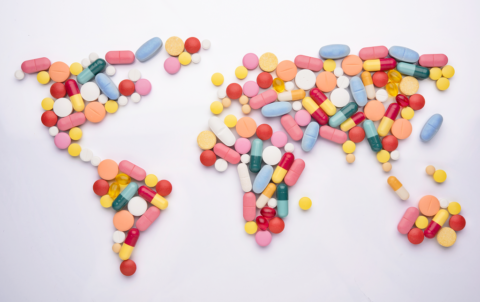Improving access to MS treatment and healthcare
Addressing barriers to accessing treatment at a global, regional and national level
Last updated: 17th March 2023
The barriers to accessing MS healthcare are wide-ranging and complex. They vary from country to country, but also between different groups within countries. Some challenges can be addressed locally, but in an interconnected world it is vital we also look to global, sustainable solutions.
Our work globally
A diagnosis of MS is essential for getting treatment, but the Atlas of MS reports that 83% of countries worldwide have barriers that prevent early diagnosis of MS. Along with early diagnosis, access to treatment can make a significant difference to the quality of life of people living with MS. Very effective treatments, or disease modifying therapies (DMTs) exist to manage MS, minimising relapses and reducing future disability.
As of 2021, there are 17 different disease modifying therapies approved by the European Medicines Agency (EMA) and/or the Food and Drug Administration (FDA) for treating MS. Yet access to DMTs is not universal – data from the Atlas of MS shows that people with MS in 70% of countries face barriers in accessing DMTs.
To tackle these challenges, we have set out a framework for the actions that are needed so that people with MS can benefit from swift diagnosis and the right treatment at the right time. This work is driven and shaped by MSIF’s International Working Group on Access, made up of MS experts from over 15 countries across all world regions.
More recently, we have set out priorities for MS healthcare in our response to the WHO’s draft intersectoral global action plan for epilepsy and other neurological disorders (IGAP), and our comments on the final plan.
In the video below, Joanna Laurson-Doube, MSIF’s International Access Consultant gives an overview of MSIF’s global work to improve access to treatment.
Essential medicines for MS
It is important for people living with MS to have a range of disease modifying therapies (DMTs) available to manage the disease course and allow people to consider the benefits and risks of different approaches. Joanna Laurson-Doube, our International Consultant for Access to Treatment, writes about the issues of equitable access to treatment for people living with MS.
The WHO’s Essential Medicines List (EML) has a key role in improving access to medicines globally, yet very few medicines for neurological conditions are included in this list – and there are currently none listed for MS. The EML guides decision-makers on which disease modifying therapies should be available as a minimum in all health systems.
In 2019, MSIF applied to add three MS DMTs to the WHO’s EML, but the WHO Expert Committee did not recommend adding any of the treatments to the list. They acknowledged the public health burden of MS, the need for effective and affordable MS medications, and the high volume of letters received in support of the application but requested a revised application.
We submitted a revised application in 2022, which you can read more about here.
Off-label treatments for MS
In the Atlas of MS, 87% of countries reported using at least one off-label DMT.
Off-label DMTs are often more readily available and affordable in health systems. The evidence-base for off-label treatments is different from treatments which have regulatory approval, but off-label treatments may be the only available and affordable option in low-resource settings.
The question of whether to use off-label treatments is a real issue that clinicians and people with MS face, and we want to support people to understand the benefits and risks, so they can make the best decisions to manage their disease. This is why MSIF is reviewing the off-label use of disease modifying therapies to treat MS.
To support this work we have published principles for the Ethical use of off-label disease-modifying therapies for multiple sclerosis, which have gained wide global support from the MS community.
Our work regionally and nationally
While international long-term change is essential, real change often happens at a national level. MSIF is working together with national MS organisations to energise local action in order to address challenges around access to MS healthcare.
The Atlas of MS as a tool for change
The Atlas of MS portal provides freely available data on epidemiology and clinical management of MS around the world, allowing comparisons to be made between countries with similar income levels or geographical regions. Good quality data on people with MS (e.g. registries) and an in-depth understanding of the barriers are often effective tools for advocacy.
Using off-label treatment guidelines to improve access to treatment in Morocco
In the video below, Najoua Abkari rom HANASEP Morocco presents a case study at MENACTRIMS (Middle-East North Africa Committee for Treatment and Research in Multiple Sclerosis). The case study focuses on access to treatment in Morocco and explains how the MOLT (MSIF Off-label treatment) recommendations can be used in this context. The presentation is in Arabic with English subtitles.
